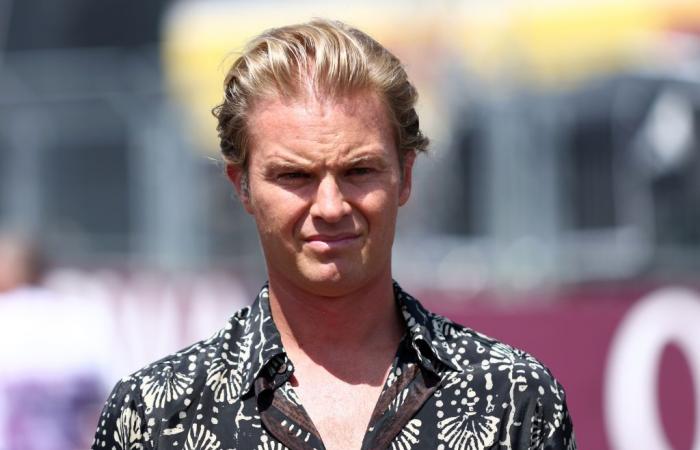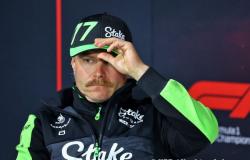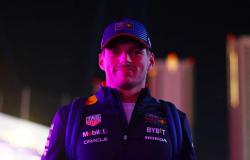
At 39 years old, Nico Rosberg can count on his celebrity to open the doors to the largest investment companies in the world. Today, the former F1 world champion is betting that this privileged access will be beneficial for many wealthy Europeans wishing to make their way in Silicon Valley.
Article from Justin Birnbaum pour Forbes US
Hurtling down the narrow streets of Monte Carlo at over 300 kilometers per hour is nothing compared to the adrenaline rush of approaching one of the legends of venture capital, co-founder Mike Maples Jr. from Floodgate. Nico Rosberg had that chance at a business conference in New York last month, and with the hundreds of admirers surrounding the famous venture capitalist, just speaking to him might have seemed impossible.
At 39 years old, Nico Rosberg has nevertheless found an effective way to break the ice in this type of situation. “I'm usually very reserved, but I have to stand out thanks to my two seconds of introduction”he explains. “So I went straight [vers lui] and I said, “Hey, I’m the F1 world champion, Nico.” »
That day, he managed to spend a few minutes with Mike Maples Jr. This is not the first time that Nico Rosberg, who spent 11 seasons racing for the Williams and Mercedes teams, has built on his success on the F1 grid to introduce himself to a whole new audience of founders and investors. Since taking his last checkered flag in 2016, the German-born driver has worked to rebuild his image as an entrepreneur, funding more than 30 companies and founding a few of his own. round. Today, with a network stretching from Silicon Valley to Western Europe, Nico Rosberg is putting himself behind the wheel of his most ambitious venture: managing a fund.
Bringing together the best American venture capital firms
In April, his Monaco-based company Rosberg Ventures announced the creation of a “fund of funds,” which pools capital and deploys it primarily through other venture capital firms, rather than invest directly in start-up companies. Nico Rosberg declared today exclusively to Forbes that it has secured $100 million in assets under management, including at least $5 million in equity. The goal, he says, is to bring together the best American venture capital firms, because “it makes sense to entrust your money to the best companies in the world”.
It's a smart strategy. A 2014 study by financial services firm Wealthfront found that 95% of the returns earned by the U.S. venture capital industry were generated by the top 20 firms in the sector, a figure that the report's author said Andy Rachleff, is still relevant today.
However, these results also made high-profile companies like Andreessen Horowitz, Kleiner Perkins and Thrive Capital so desirable that they had to turn away eager investors. This competitive ecosystem is part of Nico Rosberg's pitch: for his clients, mainly very wealthy German and Italian families who are not connected to Silicon Valley, he can leverage his relationships to offer them a service they don't want. do not have access to their homes.
“It becomes an access class rather than an asset class because all the returns are captured by these few top companies”explain Nico Rosberg. “The winners keep winning. »
From F1 to angel investing
This type of dynastic domination is a familiar concept to Nico Rosberg, even if it is in a very different realm. As a member of the Mercedes-AMG Petronas F1 team, he helped secure three consecutive constructors' championships, the start of an unprecedented run of eight titles under the billionaire owner and chief executive. Toto Wolff stable. However, in 2016, after edging out teammate Lewis Hamilton for the World Drivers' Championship title, Nico Rosberg shocked the racing world and abruptly ended his career at the age of 31.
He quickly turned to angel investing and joined the circle of famous athletes who became true entrepreneurs, not just endorsers. Thus, Lakers point guard LeBron James, who co-founded the entertainment development and production company SpringHill, in 2022 became the first active athlete to have a net worth of $1 billion, while Joe Famed NFL quarterback Montana and legendary tennis player Serena Williams have found success in venture capital. As for Nico Rosberg, he had money to grow after amassing nearly $80 million in pre-tax earnings over the course of his career, thanks to his F1 salary and performance bonuses, according to estimates from Forbes.
“As an athlete or celebrity, you generally have access to information”explains a partner at a large venture capital firm in Silicon Valley, where Nico Rosberg is an investor. “You get this special access because people want to know you, they want to connect with you. […] If you are able to introduce yourself to the best companies, bring added value and have a nice envelope to invest, then you are welcome. »
Nico Rosberg's links to F1 saw him land his first opportunity shortly after leaving motorsport. Mercedes-Benz, the car manufacturer which owns a third of the racing team, was investing in the start-up ChargePoint, specializing in infrastructure for electric vehicles, and invited the former champion to participate. He wrote a five-figure check and stepped down after the company went public in 2021. Nico Rosberg refuses to reveal exactly how much he made on the deal, but says it was “much more than I invested”.
Its portfolio has only grown from there, covering a wide range of sectors, including ride-sharing (Vay) and artificial intelligence (Codeium), at an average of $50,000 per investment. . He took a stake in the start-up Ivy, specializing in digital payments, after sending a series of spontaneous emails. “I said to myself, ‘Okay, I respect your enthusiasm. Let’s meet” »explains Ferdinand Dabitz, co-founder of Ivy.
Bring added value
Although balance sheets are not necessarily his area of expertise, Nico Rosberg has found other ways to add value, for example by introducing Ferdinand Dabitz to a European CEO in the transport sector, a potential client of Ivy.
Through co-investment opportunities, cold calls, and founder introductions, Nico Rosberg began to build his reputation in the venture capital space. The reality TV series Formula 1: Drivers of their destiny of Netflix, which allowed F1 to reach a new level of popularity in the United States, also promoted its stardom across the Atlantic. However, Nico Rosberg suffered a series of refusals when he tried to invest his money in leading funds. On his fifth failed attempt, the Andreessen Horowitz Company gave him some advice, suggesting he go to companies with bigger checks and a clear way to stand out.
Nico Rosberg, who was born in Germany and raised in Monaco, therefore decided to accumulate capital and turned to the other side of the Atlantic. The European venture capital market is much less mature and has raised only a third of its U.S. counterpart's $140 billion so far, according to Crunchbase. “We don’t really have the equivalent of Silicon Valley or even New York”says Nigel Morris, managing partner of fintech venture capital firm QED Investors and a prominent English businessman who has yet to work with Nico Rosberg. Nigel Morris adds that the region lags behind in market dynamism, i.e. the quality and pace of transactions, and that investors face regulatory and cultural differences of a country to another.
Nico Rosberg, who had the opportunity to make a name for himself as the son of former F1 champion Keke Rosberg and who strengthened his celebrity by participating for several seasons on the German show Shark Tank, The Lion's Den (The Lions' Den), has found a way to connect with the families behind German mid- and large-cap companies. He also came into contact with investors in Italy, where he has many fans. And he had a unique proposition to sell them: access to Silicon Valley.
“If you don't get into the best venture capital funds, your average portfolio will show unsatisfactory returns”says a member of a large German industrial family who invested with Nico Rosberg. “There are a lot of people in the industry who make promises about what they can achieve, but Nico keeps his promises. »
A large network of European investors
With a network of European investors at his disposal, Nico Rosberg therefore had a largely untapped reservoir of capital to attract the attention of large funds. He quietly raised $22 million towards the end of 2022 and, at the time of the calendar change, committed the entire amount to a single Tier 1 company. This directly led to the creation of its fund of funds, which in April began raising $75 million and ended with $78 million in oversubscribed issues, from about 25 investors. The fund will be fully deployed within two years, although Nico Rosberg once again refuses to reveal exactly through which companies.
It will take much longer to judge the fund's performance. It operates on a ten-year cycle, with the option of adding three-year extensions, mimicking the way the underlying investment funds operate. Historically, the best funds in the sector have had an average annual return of 25%, but in the future, according to Nico Rosberg, there is a consensus that this return could be a little worse across the sector , Or “slightly more restricted”in his words. He plans to create a new fund of funds every two years to stay active when top companies offer new opportunities.
While this money is managed elsewhere, Nico Rosberg will not remain idle. He regularly organizes events at F1 races and builds new relationships within his network. In fact, he helped negotiate a profit-sharing partnership between German technology company SAP and startup SecJur, which specializes in compliance automation.
“We create connections”declares Nico Rosberg. “This is what we do. »
A translation by Flora Lucas. This article can be found in the original version on Forbes.com.
Also read: Formula 1: real-time streaming or victory data





